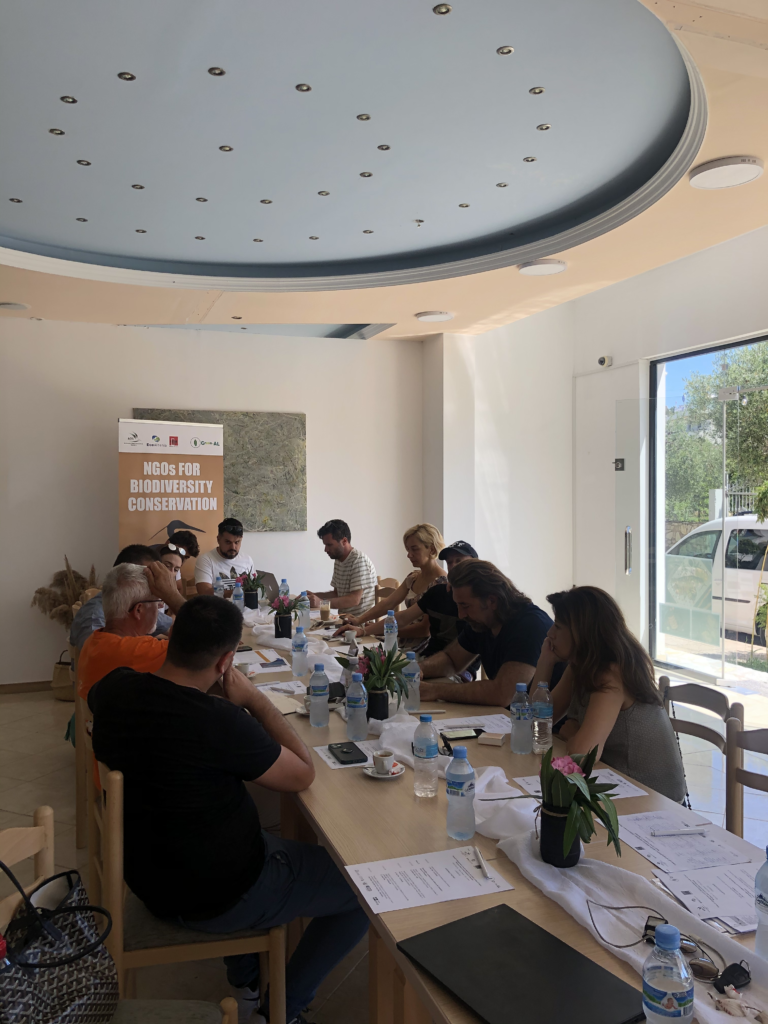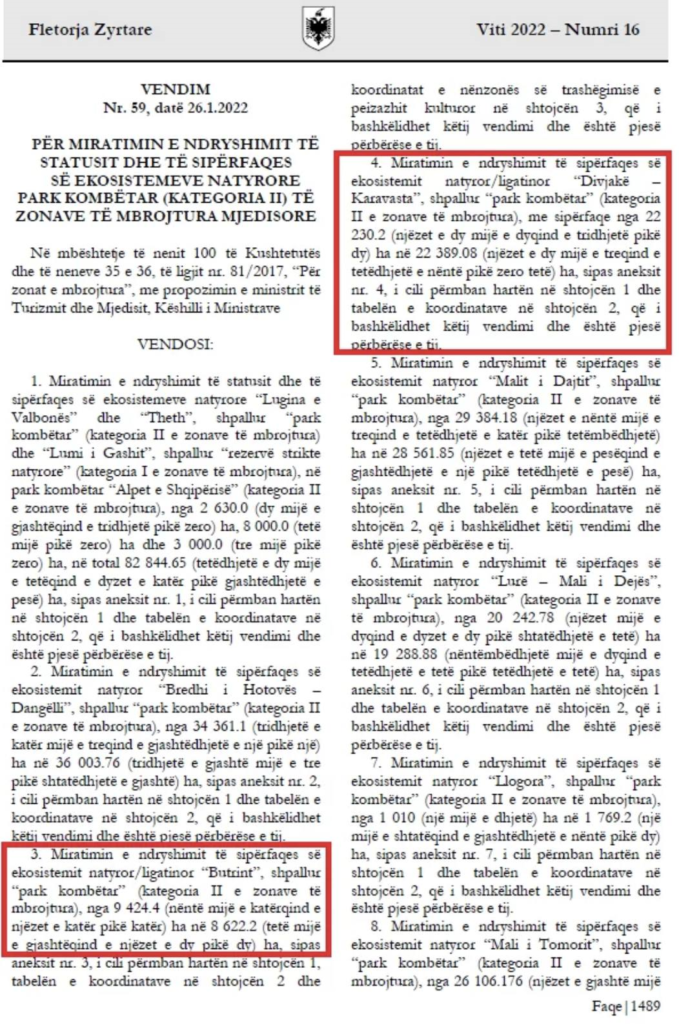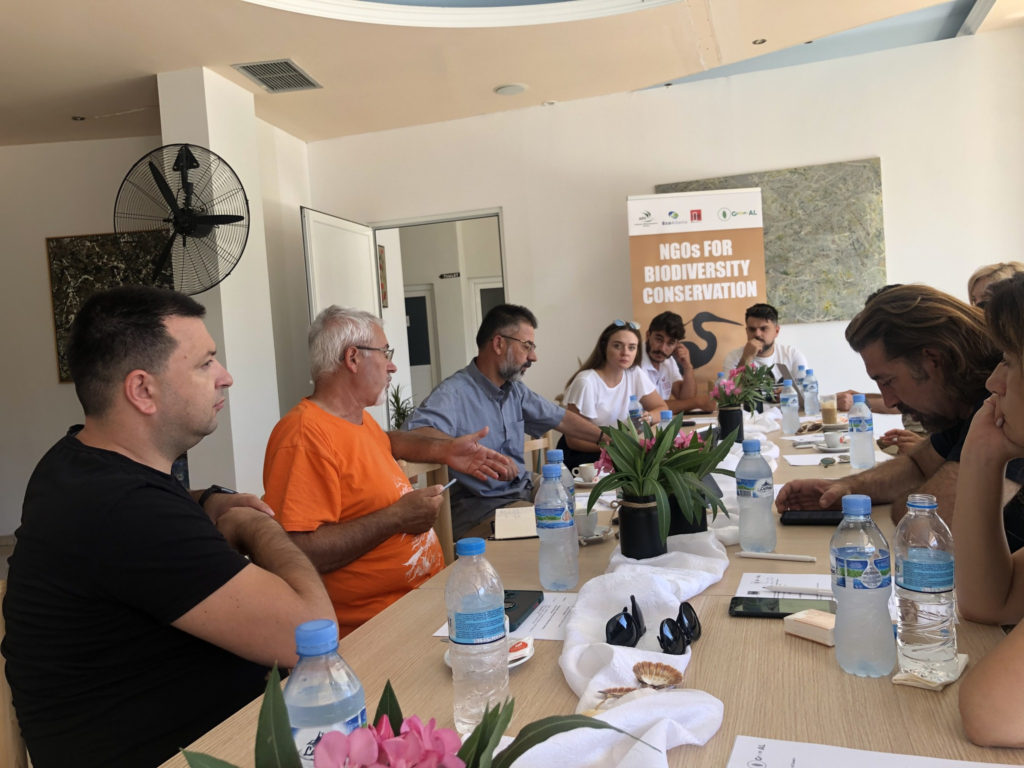The Coalition of Environmental NGOs recently convened a significant consultative meeting in Ksamil, marking the first step in a collective effort to address the impact of rezoning within the Protected Areas.
This gathering brought together local stakeholders to discuss and strategize about the changing boundaries of these critical conservation zones, with a specific focus on the current situation in Butrint National Park.
The meeting served as a platform for deliberation on the potential consequences of rezoning, relevant activities in the park, and the strategies required to counter this non-inclusive decision-making process.
The backdrop for this critical meeting stems from a 2020 decision that initiated a comprehensive review of our country’s network of protected areas. Among the consequences of this review was a reduction of 800 hectares, equivalent to 8.5% of the territory of Butrint National Park. This reduction was purportedly driven by the desire to eliminate the urban area of Ksamil. However, a closer look reveals that it entails the removal of not just the urban part but the entire western coastal segment of the Park, excluding several small bays along the northern border (such as Manastir Beach, Pulëbardha Beach, and Bay of Harta) as well as those along the southern border, including Marina Bay and Pema e Thatë Bay.



The Butrint National Park, with its rich biodiversity and cultural heritage, stands as one of Albania’s most valuable natural treasures. It has been designated as a UNESCO World Heritage Site since 1992, underscoring its global significance. This unique ecosystem encompasses a mosaic of ecosystems, including wetlands, forests, and ancient archaeological sites, making it a prime example of a harmonious coexistence between nature and culture.The recent rezoning decision threatens the very essence of this park and raises concerns among environmental organizations, NGOs, and local communities. The meeting hosted by the Coalition of Environmental NGOs sought to address these concerns and explore the potential consequences.
During the consultation, participants engaged in a robust dialogue about the changes to the park’s boundaries and their far-reaching implications. Concerns were expressed about the environmental, cultural, and economic impacts that may arise from the rezoning process. The removal of vast sections of the park, especially the coastal areas, may disrupt the delicate balance of the ecosystem, impacting the diverse flora and fauna within the park’s borders. Furthermore, the alteration of these boundaries might jeopardize the long-term sustainability of the park, which relies on the coexistence of nature, culture, and local communities.
The Coalition of Environmental NGOs, along with local actors, recognized the importance of concerted efforts to safeguard Butrint National Park’s integrity. Strategies discussed ranged from advocacy and legal action to community engagement and raising public awareness. In conclusion, the Coalition of Environmental NGOs, in collaboration with local actors, is taking proactive steps to address the rezoning of Protected Areas, with a special emphasis on Butrint National Park. This critical meeting served as a rallying point for concerned stakeholders who are committed to preserving the park’s unique natural and cultural heritage. The collective effort to safeguard this invaluable treasure underscores the importance of community engagement, responsible decision-making, and the preservation of our natural wonders for future generations.
The activities are part of the “NGOs for Biodiversity Conservation” project, supported by #GreenAL. Funding for this project comes from the Swedish International Development Cooperation Agency (SIDA), with contributions from the Swedish Government. The project is implemented by Co-PLAN Institute for Habitat Development, in collaboration with CISP Sviluppo dei Popoli, VIS Albania, and COSV – Cooperazione per lo Sviluppo.
#GreenAL, (#SIDA) by #CoPLAN, #VISAlbania and #COSV








